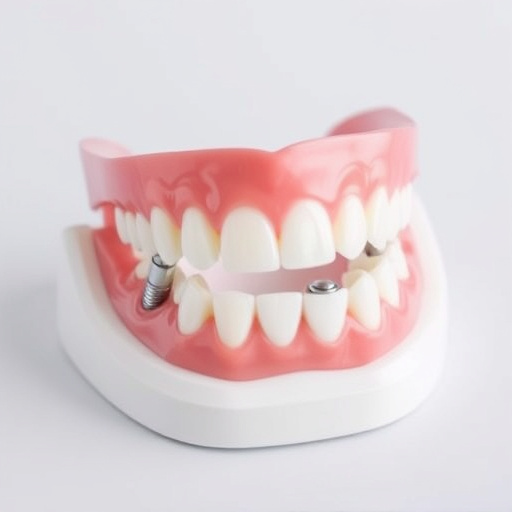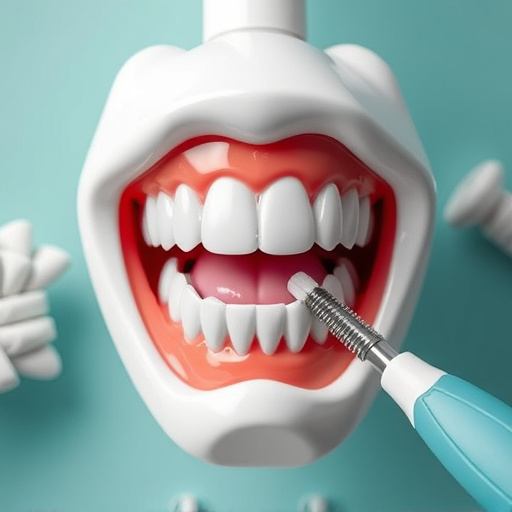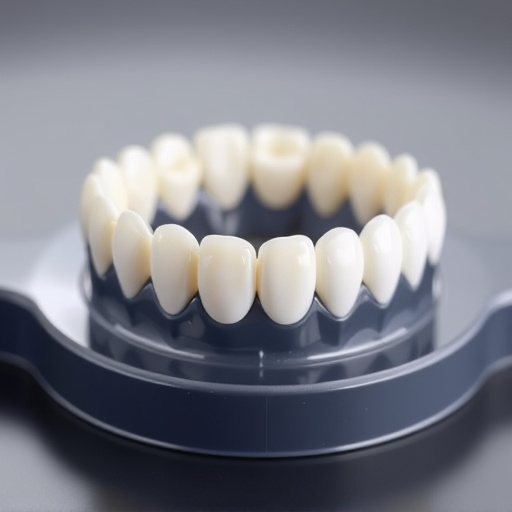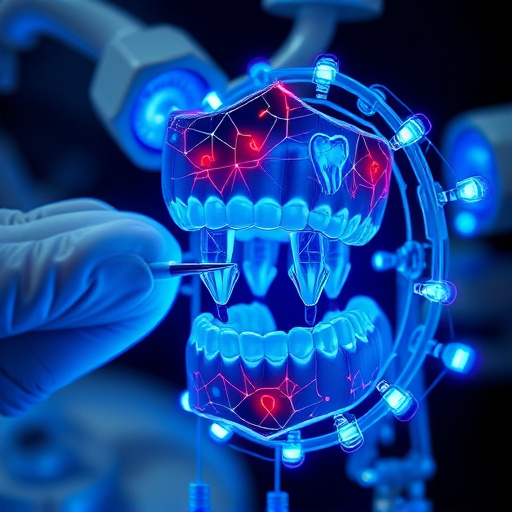Missing teeth not only create visible gaps but also pose risks to jawbone health due to bone resorption. Regular dental exams, preventive dentistry, and various tooth replacement options like implants, bridges, or dentures are crucial for maintaining oral health and structural integrity. Dental implants, in particular, act as artificial roots, promoting bone growth, offering both functional and aesthetic benefits, and providing a durable solution compared to removable dentures or bridges. Regular care ensures the longevity of these tooth replacement options.
Losing teeth can lead to jawbone degradation, a process known as bone resorption. This not only impacts facial structure but also affects overall oral health. Understanding the right tooth replacement options is crucial for preserving jawbone health and maintaining a natural, functional smile. This article explores various alternatives, with a focus on dental implants—a popular and effective solution—as well as other restorative choices to help you make an informed decision tailored to your needs.
- Understanding Jawbone Degeneration After Tooth Loss
- Dental Implants: A Popular and Effective Solution
- Alternative Options for Restoring Your Smile
Understanding Jawbone Degeneration After Tooth Loss

When a tooth goes missing, it’s not just the visible gap that needs attention—the health of the jawbone is also at risk. Over time, if a tooth is not replaced, the jawbone can degenerate, leading to significant structural changes and potential complications for overall oral health. This process, known as bone resorption, occurs because the jawbone requires stimulation from teeth to maintain its strength and density. Without it, the bone can shrink and weaken, making it difficult to support dental restorations or even natural tooth regrowth.
Regular routine oral exams are crucial in monitoring this condition, as a family dentistry practice can detect early signs of jawbone degradation. Preventive dentistry plays a vital role in preserving bone health, and various tooth replacement options can be considered to mitigate these effects. These include implant-based solutions, which fuse with the jawbone, providing stable support for artificial teeth, or traditional bridges and dentures that also stimulate the bone to some extent compared to missing teeth.
Dental Implants: A Popular and Effective Solution

Dental implants have established themselves as a popular and effective solution within the realm of tooth replacement options. These advanced devices serve as artificial tooth roots, securely anchoring dental crowns to restore both functionality and aesthetics. The unique design allows for seamless integration with the jawbone, stimulating bone growth and preserving overall oral health—a key advantage over traditional restorative dentistry methods.
By offering a long-lasting, durable alternative to removable dentures or bridges, dental implants cater to patients seeking a permanent solution. This not only enhances chewing capabilities but also improves speech clarity, ensuring comfort and confidence in one’s smile. Moreover, their biocompatible nature makes them an ideal choice for both adults and children’s dentistry, promoting optimal jawbone health while providing a natural-feeling replacement for lost teeth.
Alternative Options for Restoring Your Smile

When it comes to tooth replacement options that preserve jawbone health, there are several alternatives to traditional dentures or bridges. One innovative solution is dental implants, which serve as an artificial root for a single tooth or multiple teeth. These implants are surgically placed into the jawbone, promoting bone growth and maintaining facial structure, much like natural teeth. This not only restores your smile but also enhances overall oral health.
Another popular option is cosmetic fillings, which can be used to repair damaged or decayed teeth. These fillings are designed to match the natural color of your teeth, providing both functional and aesthetic benefits. For those needing more substantial restoration, dental crowns can be placed over weakened or broken teeth, offering protection and improving their appearance. Regular dental cleanings and check-ups play a crucial role in maintaining these tooth replacement options, ensuring optimal health for your smile.
When considering tooth replacement options, preserving jawbone health is crucial. After tooth loss, bone degradation can occur, impacting overall oral health and facial structure. Dental implants are a popular choice as they stimulate bone growth, offering a long-term solution. However, there are alternative options available, such as bridges or dentures, that can also effectively restore your smile while maintaining jawbone integrity. Choosing the right tooth replacement method is essential for both functionality and aesthetics, ensuring you regain confidence in your smile.














